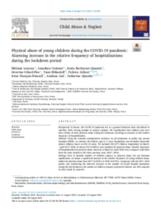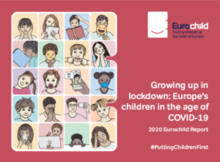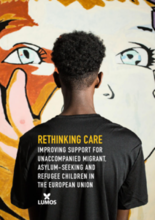Displaying 11 - 20 of 104
A slim and chilling new book has ignited a public debate in France on the country's refusal to bring back hundreds of French children who were left in Kurdish camps in Syria.
In France, the COVID-19 pandemic led to a general lockdown from mid-March to mid-May 2020, forcing families to remain confined. This study found a significant increase in the relative frequency of young children hospitalized for physical abuse from 2017 (0.053%) to 2020 (0.073%).
Victims of abuse within France’s Catholic Church welcomed a historic turning point Tuesday after a new report estimated that 330,000 children in France were sexually abused over the past 70 years, providing the country’s first accounting of the worldwide phenomenon.
The aim of this study was to examine whether 1) attachment to the biological parents mediates the association between abuse and suicidal risk (SR) and 2) attachment to a foster parent (whether from a foster home or an institution) moderates the effect of attachment to biological parents on SR.
This study investigates the extent and causes of child abandonment and various practices and services in relation to prevention of child abandonment in Denmark and other high-income countries.
This report reflects on the effects of the coronavirus pandemic on children. It compiles information gathered from 25 countries across Europe, and provides recommendations for improving public policies in the short and long-term to support better outcomes for children and families, including children in alternative care or at risk of separation.
This study explored the feelings, perceptions, and stigma experienced by families of internationally adopted children with special needs.
FICE Israel decided to initiate a short survey to document and share information about the way different countries handled their policies and practices in residential care facilities during that period. This report presents findings and some conclusions from this primary survey.
This report maps and assesses the forms of care provided to unaccompanied migrant, asylum-seeking and refugee children in six European Union Member States: Bulgaria, France, Italy, Greece, the Netherlands and Spain.
"Unaccompanied migrant children [in Marseille and Gap] are not being given shelter and other essential services by the Bouches-du-Rhône and Hautes-Alpes departments, which are responsible for their care, putting them at risk and weakening the authorities’ response to the pandemic," says this article from Human Rights Watch.




